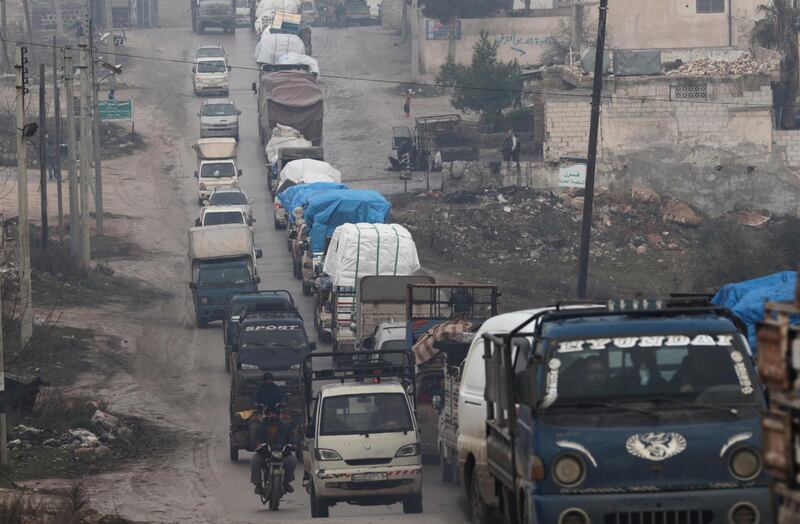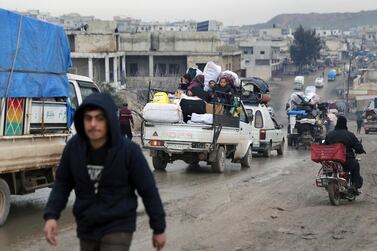Iran’s Quds Force has become temporarily “directionless” in the wake of the killing of its leader Qassem Suleimani, a senior US official has claimed.
James Jeffrey, special representative on Syria, said the US airstrike on Suleimani in Baghdad earlier this month had knocked the Quds Force “back on their heels” as they sought to spread their influence across the Middle East.
“Are they still dangerous? Yes. But for the moment, because we took out their leader, Qassem Suleimani – and I cannot stress too much how vital he was for their evil campaign to expand Iranian influence throughout the region – they have been not quite headless, but they have been directionless to a degree that we have not seen for a long time,” Mr Jeffrey told reporters.
“That will, sooner or later I’m sure, change somewhat because they do have a new leader of the Quds Force and eventually they will re-establish their communications with their groups,” he added.
Mr Jeffrey was speaking as the Syrian regime and its allies bombard the rebel-held province of Idlib, which has led to mass displacement and huge humanitarian concerns.
The US official said there would be a continuing push for sanctions because it made it harder for Syrian President Bashar Al Assad and his allies, including Iran, to “pursue their military victory strategy”.
He said this was evidenced by the “total freefall” of the Syrian pound and gas shortages.
“The Assad regime is under tremendous economic pressure because it and its allies are putting all of their money into this awful campaign in Idlib and other efforts to essentially wage war on their own population,” he said.
But Mr Jeffrey said this would not involve a US military operation – unless chemical weapons were again used.
The Assad regime earlier this week captured the city of Maaret Al Numan in Idlib province. The British government said more than 1,500 civilians have been killed since last April and hundreds of thousands displaced.
"This vicious campaign of attrition continues to force civilians to flee by targeting their schools, hospitals and emergency first responders. The UK condemns the repeated flouting of International Humanitarian Law,” said Foreign Secretary Dominic Raab.







